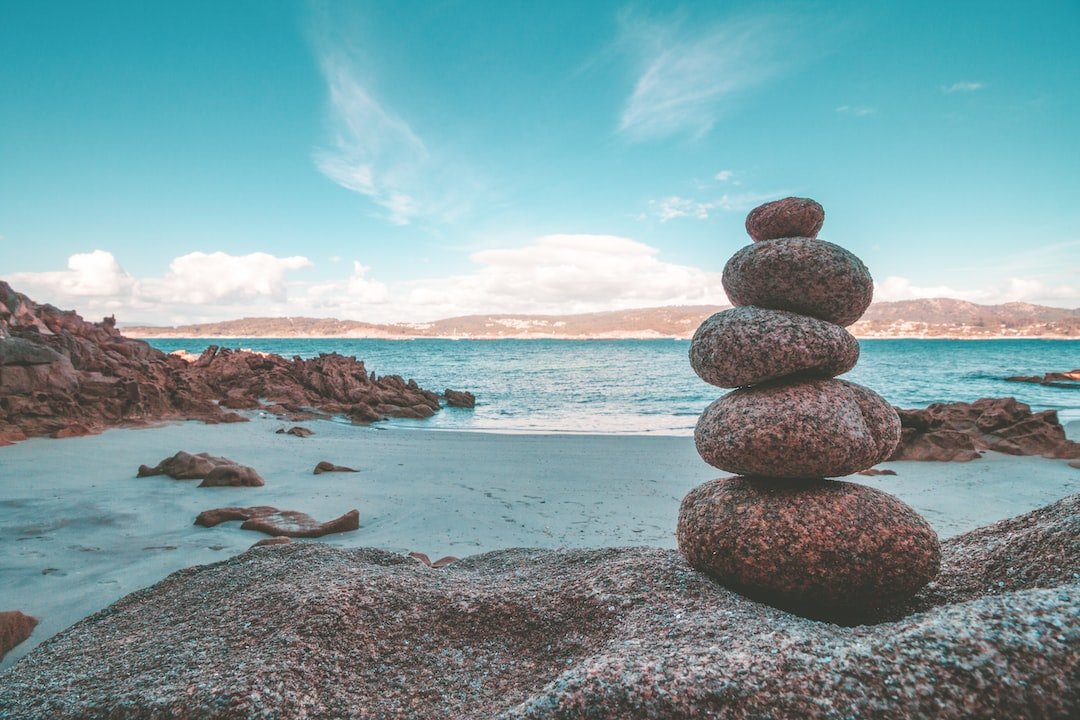Do you often find yourself feeling overwhelmed, stressed, or anxious? If so, you're not alone. In today's fast-paced world, it's easy for our minds to become cluttered with thoughts, worries, and distractions. The good news is that there are steps you can take to declutter your mind and find inner peace. In this article, we'll explore some effective strategies to help you achieve a calm and focused state of mind.
1. Practice Mindfulness
Mindfulness is all about being fully present in the moment. It involves paying attention to your thoughts, feelings, and sensations without judgment. By practicing mindfulness, you can train your mind to let go of unnecessary worries and distractions. One simple way to incorporate mindfulness into your daily routine is by practicing deep breathing exercises. Take a few minutes each day to focus on your breath, inhaling deeply and exhaling slowly. This can help promote relaxation and clarity of mind.
2. Create a To-Do List
Having a clear plan for your day can help reduce mental clutter. Take a few minutes each morning to create a to-do list outlining your priorities and tasks. Break down larger projects into smaller, manageable steps. By breaking tasks into bite-sized pieces, you'll find it easier to stay focused and organized. As you complete each item on your list, you'll experience a sense of accomplishment, which can further contribute to your inner peace.
3. Practice Journaling
Writing down your thoughts and feelings in a journal can be incredibly therapeutic. Take a few minutes each day to reflect on your day, express gratitude, and release any negative emotions. Journaling can help you gain clarity, process your emotions, and identify patterns or triggers that contribute to mental clutter. It can also serve as a tool for self-reflection and personal growth. Make journaling a regular part of your routine to declutter your mind and find inner peace.
4. Disconnect from Technology
In today's hyper-connected world, it's easy to get overwhelmed by constant notifications and information overload. Take regular breaks from technology to give your mind a chance to rest and recharge. Set aside designated times each day to disconnect from your devices and engage in other activities that bring you joy and peace. Whether it's going for a walk in nature, practicing a hobby, or spending quality time with loved ones, disconnecting from technology can help declutter your mind and enable you to be more present in the moment.
5. Practice Gratitude
Cultivating gratitude is a powerful practice that can bring immense peace and happiness to your life. Take a moment each day to reflect on the things you are grateful for. It could be as simple as appreciating a beautiful sunset or expressing gratitude for the support of loved ones. By shifting your focus to the positive aspects of your life, you'll find it easier to let go of worry and negative thoughts. Incorporate gratitude into your daily routine, and you'll be amazed at the positive impact it can have on your mental well-being.
6. Prioritize Self-Care
Self-care is not selfish; it's essential for maintaining your mental, emotional, and physical well-being. Make self-care a priority by engaging in activities that nourish your mind, body, and soul. This could include exercise, meditation, taking relaxing baths, reading a good book, or spending time in nature. By taking care of yourself, you'll be better equipped to handle life's challenges and find inner peace.
7. Practice Time Management
Poor time management can contribute to mental clutter and cause unnecessary stress. Take the time to analyze how you spend your time and identify areas for improvement. Prioritize your most important tasks and eliminate or delegate non-essential ones. Set realistic deadlines and break larger projects into smaller, manageable chunks. By managing your time effectively, you'll reduce overwhelm and create space for peace and clarity of mind.
8. Establish Boundaries
Setting boundaries is crucial for protecting your mental well-being. Learn to say no to tasks or commitments that don't align with your values or priorities. Establish clear boundaries with the people in your life and communicate your needs and limits. This will help prevent others from encroaching on your time and energy, giving you the space you need to focus on decluttering your mind and finding inner peace.
9. Declutter Your Physical Space
Your physical environment can greatly impact your mental well-being. Take the time to declutter and organize your living and working spaces. Remove any unnecessary items and create dedicated spaces for the things that bring you joy and inspiration. A tidy physical space can promote a sense of calm and clarity, making it easier to achieve inner peace.
10. Seek Support
Don't hesitate to reach out for support if you're feeling overwhelmed or struggling to declutter your mind. Consider seeking guidance from a therapist, counselor, or life coach who can provide valuable techniques and strategies to help you find inner peace. Sometimes, a fresh perspective can make all the difference in managing mental clutter and achieving a more peaceful state of mind.
11. Practice Forgiveness
Harboring grudges or holding onto anger and resentment can clutter your mind and weigh you down. Practice forgiveness towards yourself and others to let go of negativity and create space for peace. Remember that forgiveness is a gift you give to yourself, not to the person you're forgiving. By releasing negative emotions and embracing forgiveness, you'll free up mental space and find inner peace.
12. Embrace Imperfection
We often put pressure on ourselves to be perfect, which can contribute to mental clutter and stress. Embrace your imperfections and let go of the need for perfection. Accept that life is full of ups and downs, and it's okay to make mistakes along the way. By embracing imperfection, you'll release unnecessary pressure and create space for self-compassion and inner peace.
Declutter Your Mind and Find Inner Peace Today
Decluttering your mind is an ongoing practice that requires patience, commitment, and self-reflection. By incorporating these strategies into your daily routine, you'll gradually create more space for inner peace and clarity of mind. Remember, finding inner peace is a journey, not a destination. Enjoy the process, and celebrate each small step you take towards a clutter-free and tranquil mind.


Share:
The Art of Minimalism: Simplifying Your Life
Organizing Your Bathroom: Tips for a Serene Space